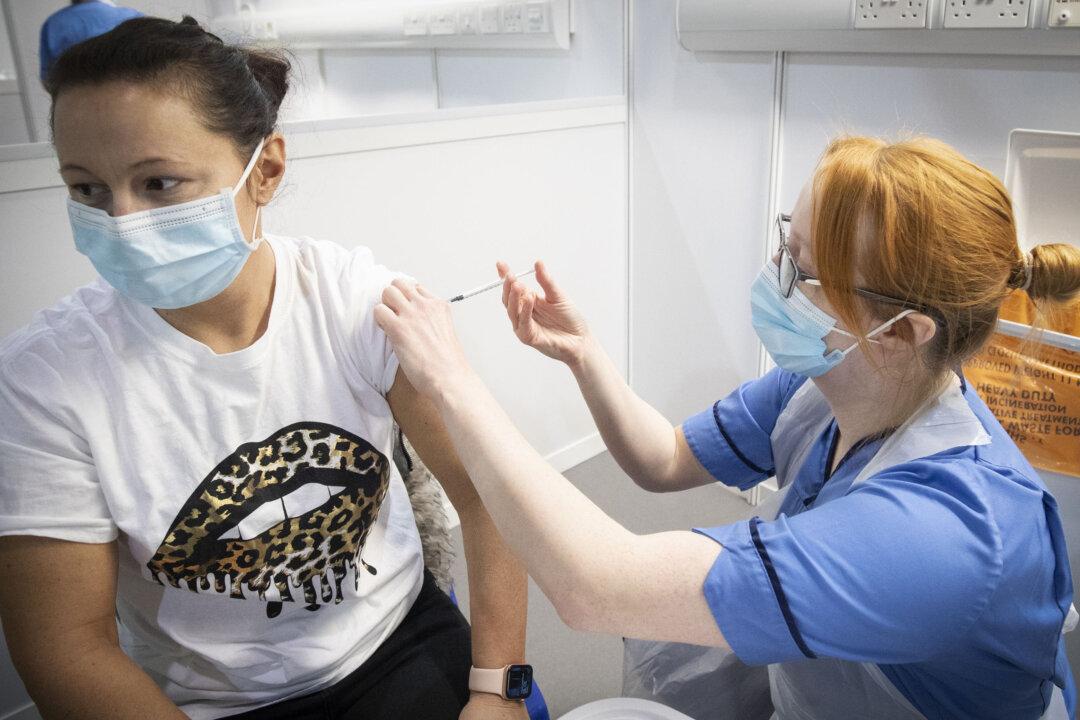One dose of either Pfizer/BioNTech or AstraZeneca vaccines can reduce the risk of CCP virus transmission by up to a half, a new study has found.
A preprint of the study (pdf) by Public Health England (PHE) said that those who received one dose of a vaccine at least 21 days before being tested positive have a 40–50 percent lower chance of transmitting it within the same household than those who were unvaccinated.





